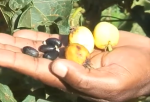
Emely Caire @ emely457852046 Member Since: 08 Jan 2025
 United States
United States
About Me
Climate Change: Growing Doubts Over Chip Fat Biofuel
Climate change: Growing doubts over chip fat biofuel
21 April 2021
remarks
354 Comments
New research concerns the environmental effect of increasing imports of used cooking oil (UCO) into the UK and Europe.
Chip fat and other oils are thought about waste, so when they are utilized to make biodiesel it conserves carbon emissions by displacing fossil oil.
But such is the need across Europe that imports now represent over half of the UCO that's made into fuel.
According to the study, external, there's no chance to show these imports are sustainable.
With no screening of what's being available in, experts believe it is also ripe for fraud.

Used cooking oil imports might improve deforestation
Consumers present 'growing threat' to tropical forests
Reducing emissions from transportation is proving to be one of the hardest difficulties for federal governments all over the world.
They have actually motivated making use of biofuels as an important methods of curbing carbon from vehicles and trucks.
Biofuels are generally a blend of nonrenewable fuel source and oil made from plants or veggies.
The truth that these crops can be re-grown and soak up more CO2 means they cancel out the carbon released when used in engines.
Soy and palm oil were when extensively utilized as parts of biodiesel however this practice has been commonly rejected because it motivates logging.
So for the last decade or so, using used cooking oil has broadened massively as an alternative feedstock for fuel.
Chip fat and other waste oils have become an essential part of biodiesel with a reliable industry emerging across Europe to gather and process the product.
But with the quantity of biodiesel made from UCO increasing by around 40% every year considering that 2014, there merely isn't enough chip fat to go around.
According to a report from the campaign group Transport & Environment, external, more than half of the UCO utilized in Europe is imported.
Their study recommends this is extremely troublesome when it pertains to impacts on the environment.
While UCO is considered a waste product in the UK, in China, Indonesia and Malaysia it has long been used to feed animals. The report raises the concern of what people in these nations are changing the UCO with, when it is exported.
In 2019, Malaysia exported 90 million litres of UCO to the UK and Ireland. Figures for their exports to other European nations aren't readily available but the circulation of UCO is likely to be comparable.
With a population of around 33 million, that's close to three litres per head of used oil that's collected and exported to the UK and Ireland alone.
By comparison, Thailand, which has a population of 70 million individuals, handled to gather around 5 million litres of UCO in 2019.
"Because we are buying it, they have actually less utilized cooking oil to utilize on the things that they were previously utilizing it for," said Greg Archer with Transport & Environment.
"And they're just buying more virgin oil and that virgin oil is mostly palm oil, because that's the least expensive oil readily available.
"So indirectly, we're just encouraging more logging in Southeast Asia."
Another significant issue with UCO is the suspicion of scams.
Because of need from Europe, the price of UCO is frequently higher than palm oil. The worry is that some unethical traders are simply watering down deliveries of UCO with palm.
As oils of different types are mixed in bulk for transportation, and no testing of the materials is performed, some experts believe fraud is swarming.
The tip of fraud anywhere along the chain of supply is turned down by the European Waste-to-Advanced Biofuels Association (EWABA), who state there are robust certification plans in location.
"It is commonly understood that the European Commission has actually taken appropriate steps to entirely curb unsound market practices in biofuel markets," said Angel Alberdi, EWABA's secretary general.
He says a new database being developed by the EU will make sure that trading, accreditation and sustainability information on all bio-liquids will need to be signed up.
"The mix of revised certification schemes and the pan-EU track and trace database will make sure that no sustainability issues develop in the entire biofuels and chain," he informed BBC News.
Others in the field are concerned that the database idea, which was very first mooted in 2018, might not work in stemming believed fraud.
The report from Transport & Environment points out that with shipping and aviation seeking to decarbonise by utilizing biofuels, need for UCO might double over the next decade.
"Rising the demand beyond sustainable supply levels would increase these concerns, and risks of using 'phony' UCO, potentially resulting in indirect effects such as deforestation."
Follow Matt on Twitter @mattmcgrathbbc, external.
Related topics
COP26
Paris climate agreement
Climate


